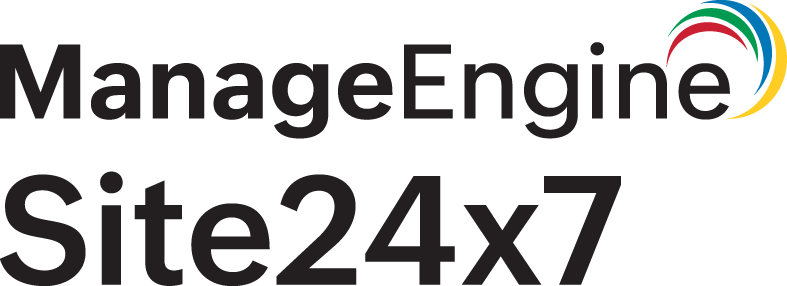Performance Metrics for Docker Monitoring
Monitoring docker containers is a challenge as they are isolated and the applications are dynamically allocated. With these performance metrics, you can now easily track the docker hosts and all the containers from a single console.
Once the Linux agent is successfully installed, it will add the docker host and all the containers as separate monitors in the Site24x7 web client. Log in to Site24x7 and go to Server > Docker > Docker Hosts and Containers to view the respective metrics.
- Health dashboard
- Performance metrics for docker hosts
- Performance metrics for containers
- Performance reports for docker hosts and containers
Health Dashboard
Once the docker and container monitors are added in the Site24x7 web client, navigate to Server > Docker > Health Dashboard. This provides a real-time status of all the containers in your environment as a NOC dashboard and the Top N Reports based on traffic, IO, CPU utilization, and memory.
Performance Metrics for Docker Hosts
- Monitor Overview: View the top containers by CPU, I/O, memory and traffic, all in one dashboard.
- Images: Get the list of the frequenty used container images.
- Containers: Know about your containers and the port, volume bindings associated with each of them.
- Events: Get real-time events from your server.
Monitor Overview
| Parameters | Description |
| Top Containers by Memory | The top ten containers based on memory |
| Top Containers by CPU | The top ten containers based on CPU |
| Top Containers by I/O | The top ten containers based on I/O |
| Docker Info | Lists the count of total, running, stopped, and paused containers |
Images
Monitor docker images to be updated on the image versions deployed across hosts in large environments.
| Parameters | Description |
| Image ID | Contains the SHA256 hash of the image's JSON configuration object |
| Created Time | The time stamp of an image created |
| Size | Virtual size taken up by an image |
Containers
| Parameters | Description |
| Containers Info | Lists down the containers in the docker host. Click on Discover Containers to add new containers for monitoring. Click on a container name to view the performance metrics of individual containers. |
| Port Bindings | Details of all the ports exposed by the container and their mappings with the host |
| Volume Binding | Details of all the volumes attached to the container |
You can start, stop, and restart your containers manually from this tab or use Site24x7 IT Automation to automate them.
Events
| Parameters | Description |
| Event Time | Time of occurence of the event |
| Container/Image Name | Name of the container/image |
| Event | Type of event |
| Image Associated | Image used by the container that generates event |
Performance Metrics for Containers
In the Site24x7 web client, go to Server > Docker > Containers > click on a monitor.
| Parameters | Description |
| Port Bindings | Details of all the ports exposed by the container and their mappings with the host |
| Volume Binding | Details of all the volumes attached to the container |
| CPU Utilization | The percentage of CPU utilized by the container |
| Network Stats | Total number of bytes received and transmitted by the container interfaces |
| I/O Utilization | Number of I/Os read, written, completed to/from the disk by the container |
| Anonymous Memory Statistics | The amount of anonymous memory that has been identified as active and inactive by the kernel respectively |
| File Statistics | Cache memory that has been identified as active and inactive by the kernel respectively |
| Cache Size | The amount of memory used by the processes of this control group. |
| Page Statistics | Each time a page is "charged" (added to the accounting) to a Cgroup, PgPin increases. When a page is “uncharged” (no longer “billed” to a Cgroup), PgOut increases |
| Resident Set Size | Non-cache memory for a process |
| Total Memory | The amount of container memory that doesn't correspond to anything on disk: stacks, heaps and anonymous memory maps. |
| Swap Memory | The excess memory requirements to disk when the container has exhausted all the RAM that is available to it. |
| Unevitable Memory | The amount of memory that cannot be reclaimed. Generally, this accounts for the memory that has been locked with mlock. It is often used by crypto frameworks to make sure that secret keys and other sensitive material never gets swapped out to disk. |
Performance Reports for Docker Hosts and Containers
Log in to Site24x7 and go to Reports > Docker/Container. The following reports are available for both docker monitoring and container monitoring:
- Summary Report
- Availability Summary Report
- Health Trend Report
In addition to the above reports, Docker Monitoring includes Docker Image Report and Container Monitoring includes Performance Report and Top N Reports (CPU, Memory, Traffic, I/O).
Related Articles
- Add a Docker
- Licensing
- Server monitoring architecture
- Add a server: Windows | Linux | FreeBSD | OS X
